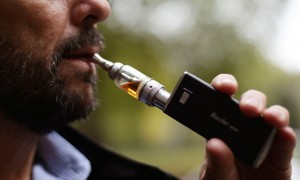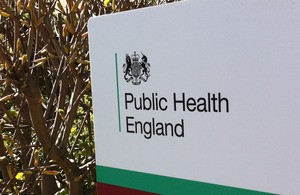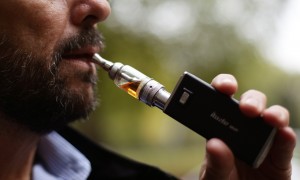The E-Cig Loop Hole That Could Save You Thousands on Health Insurance
For years, smokers have paid higher premiums for health insurance, but those rates are climbing even higher thanks to the Affordable Care Act, more commonly known as ObamaCare. Since the new healthcare policies took effect, insurers can now set premiums up to 50% higher for smokers. It makes sense that smokers pay higher rates considering their increased likelihood for major medical problems like strokes, cancer, and heart disease. However, the sky high premiums are creating a financial strain for many smokers, giving them just one more reason to switch over to electronic cigarettes.
As more smokers stop using tobacco cigarettes in favor of ecigs, it is causing a lot of conflict for insurers. E-cigarettes really squeeze through a hidden loophole in the Affordable Care Act. Each insurance company has to make a decision on how to handle vapers and whether to charge additional premiums as they would for tobacco use. But there really is no easy solution. While vapers argue that using ecigs is safer and will lower the odds of expensive medical bills, some insurance companies just are not convinced.
To make things even more confusing, ecig users might not even report vaping on their applications for healthcare coverage. After all, ecigs are not tobacco products so vaping is not using tobacco. Furthermore, the FDA has not approved ecigs for smoking cessation, so they technically do not fit in that category either. It’s pretty easy to see how ecig users can fly under the radar. Do you use tobacco products? No. Do you use any smoking cessation products? No. These are both truthful answers for ecig users, at least until the FDA takes legal action to classify electronic cigarettes as tobacco products or smoking cessation products.
It all boils down to how you legally define a “smoker”. If insurance companies consider vapers to be smokers, then they doll out higher premiums. On the flip side, insurance companies that group ecigs in with smoking cessation products could eventually choose to cover the cost of vaping as they would cover the cost for nicotine patches or Chantix. Each insurance company has a different reaction and some ignore vaping altogether because it is just too confusing.
According to the American Cancer Society, ObamaCare has no formal policy that insurance companies have to follow in regards to ecig users. “The Affordable Care Act does not specify e-cigarette use for purposes of cessation coverage or tobacco surcharge application.” Of course that could quickly change once the FDA regulation for ecigs is officially in effect.
For now, each insurance company is choosing their own approach. Carrie McLean, director of customer care of eHealth, said some companies are already opting to penalize vapers with a surcharge. “If a consumer indicates they use e-cigarettes, the carriers are expecting them to be uprated just as if they are a smoker,” she said. However, she also mentioned that consumers are not directly asked about what type of tobacco products they use during the application process.
According to America’s Health Insurance Plans Association, your rate will ultimately depend on how you answer the application questions and what questions you ask in response. McLean indicated that agents will typically ask about tobacco use in the last six months, but they will not directly ask if the consumer used cigarettes or ecigs. If the consumer specifically asks if ecigs count as tobacco or volunteers the information about ecig use, then the agent will most likely add a surcharge. However, if the consumer fails to ask if ecigs qualify, the surcharge is left off. Sometimes it pays to avoid asking questions.
“The problem arises because most people fill out their applications online and, as of now, most applications don’t ask specifically about e-cigarettes,” McLean said. “Consumers are left to decide on their own whether or not they consider themselves a tobacco user.” If thousands of dollars in extra insurance surcharges is resting on your decision, it’s pretty safe to assume that you will classify yourself as a non-tobacco user when you vape.
The financial consequence of a smoking surcharge is nothing to laugh about either. According to ABC News, the typical premium for a 40-year-old nonsmoker with an income of $35,000 is around $3857 per year with a $532 tax credit. But if that same individual is classified as a tobacco user, the rate automatically goes up to $5,254. That is nearly $1400 more just because the person reported tobacco use. Of course, some companies might charge even steeper surcharges for smokers.
Cynthia Cabrera, executive director of the Smoke Free Alternatives Trade Association, told reporters that ecig users should not be classified as tobacco users, regardless of how they answer questions on the application. “The SFATA does not agree with any policy that positions users of electronic cigarettes and other vapor products in the same category as smokers,” she said. “These products do not emit smoke and do not contain tobacco, tar, or any of the many carcinogens known to exist in combustible cigarettes.”
The chief medical officer of New York’s Blue Shield tends to disagree until long term research can back those claims. “Until you have some long term data and some actuarial differences to health outcomes such as lung cancer, emphysema, heart disease and other conditions which are significantly impacted by smoking, and likely to be impacted by e-cigarettes as well, you have to rate them the same,” he said.
These conflicting viewpoints could potentially escalate to a legal battle at some point in the near future. If vapers fight back against surcharges from health insurers, it could be up to a judge to determine the official definition of “smoking” or “tobacco use”. This is probably a big reasons why the FDA is pushing forward to try to regulate ecigs are tobacco products. It will eliminate any question about how to classify electronic cigarettes and instantly sentence vapers to higher insurance premiums.
How do you feel about this loophole? Is it unethical to simply leave out your ecig habit on an insurance application? Should vapers have to pay a surcharge on their rates or is it unfair?
*Disclaimer: This article is not intended for legal advice. Do your own research and make an informed decision when you complete any insurance application.
Source : Churnmag











